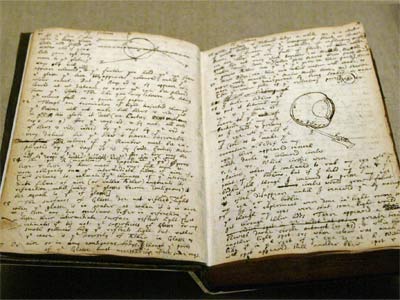 |
| The Chronology of Ancient Kingdoms Amended |
SIR ISAAC NEWTON AND THE CHRONOLOGY OF HUMAN HISTORY
Hello all you fine people out there! And did everyone fare well this past week? I certainly had several dramatic events happen. But from it all, my son-in-law has given his life to Jesus! So all the hardship and spent emotions were worth it.
Speaking about a series of events, what does Sir Isaac Newton have to do with the chronology of human history? Wasn’t he a scientist? Well, yes he was a great scientist and a great and faithful Christian. And he was a historian as well. How many of you knew he wrote a book called The
Chronology of Ancient Kingdoms Amended in 1728, and was published a year after he passed away.
Newton, however, did have an advantage over most modern scientists in that he “…was so well read in the classical Greek and Latin writers that he was able to detect serious problems in the dating of ancient records before 700 BC.
His basic claims are solid:
• God’s Word is correct in every detail, including its history, so it must be our starting point (par. 410–415).
• Except for the Bible itself, the other histories of early nations were not recorded until well after the events had passed (par. 483–484). For example, the first historian to write about ancient Egypt (apart from Moses) was Herodotus (c. 484–425 BC).
• Most records of early history were lost or distorted as a result of repeated foreign invasions (par. 517).
• Ancient peoples were not averse to making big assumptions to fill in the gaps (par. 193).
For example, Newton speaks about the Persian invasion of Egypt in 525-523 BC. Cambyses, the king of Persia at that time, invaded Egypt and destroyed the vast majority of the
Egyptian historical records that earlier invaders (the Assyrians and others) had missed during their conquests. So it was up to the Egyptian scholars to try to reconstruct their history. “Newton explains, ‘After Cambyses had carried away the records of Egypt, the priests were daily feigning new kings, to make their gods and nation look more ancient’ (par. 517).”2
 |
| King Cambyses |
Herodotus (c. 484-425/413 BC) was an early writer who traveled extensively in Egypt, Africa and Asia Minor. He recorded in detail his experiences and observations which provided later historians a detailed account of important historical events and of everyday life. He was known as the Father of History by the Romans, but has also been called the Father of Lies by critics. “When Herodotus visited Egypt in the mid-fifth century BC, the priests had constructed a list of 341 Egyptian kings reigning some 11,340 years! Even Herodotus was dubious.”3
 |
| Herodotus |
“Newton points out that except for biblical history, early historians did not use absolute dates until around 250 BC. Before that time, they usually marked time by the reign of kings. The Greeks, Romans, and Egyptians assumed that an average of three kings reigned for every century, and they pigeonholed dates accordingly (par. 204). Newton asked himself, ‘Is this reasonable?’ He then analyzed the dynasties of a dozen other known
kingdoms, such as the English monarchs. To his surprise the average reign was only eighteen to twenty years, about half of what ancient pagan historians had claimed…Applying what he learned about the average length of a king’s reign, half of Greece’s recorded history before 700 BC evaporated! For example, the Trojan War and Argonaut expedition were much more recent than is usually assumed, Newton argued. He also found that other king lists, such as the list of Roman kings, had exaggerated the length of their reigns, and so the lists should be cut in half. Newton then proceeded to look at  |
| Manetho |
Manetho, a well known Egyptian historian from the third century BC, recorded Egyptian dynasties that priests had told him about. Manetho seemed to have missed the fact that there was more than one region therefore more than one dynasty ruling at one time. He numbered all the dynasties in a straight order rather
than an overlapping order. In addition he ignored the documents that Herodotus had recorded two hundred years earlier and Manetho’s timeline had little in common with them.
 |
| Manetho |
Even today in our modern world with so much information at our fingertips, historians choose to either ignore it or don’t bother to research it. “Modern secular historians have a deep bias against Scripture, and they interpret history with a ‘hermeneutic of suspicion,’ as Egyptologist James K. Hoffmeier writes.
 |
| James K. Hoffmeier |
“Isaac Newton had the right approach. Nothing in ancient history (when properly understood) can possibly conflict with biblical history. As archaeologists continue to make exciting new discoveries, we have nothing to worry about. God’s eyewitness record is 100% true and reliable, the only sure starting point for studying the timeline of human history.”5
I love to learn about our ancient history and love even more to learn more information about ancient people. We should all be very grateful for Sir Isaac Newton’s faith and tenacious desire to record the truth and only the truth.
Until next time, God bless and take care!
Willow Dressel
References:
1-5https://answersingenesis.org/bible-history/chronology-wars/


No comments:
Post a Comment